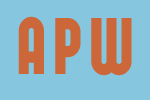Featured Guest Poet Lindsay Nelson
The Second One
When the dust had settled
And Galileo had been shaken in his grave
A great cheer was heard from
Hawaii to Normandy
Not even waiting for the
Eighty thousand
To be cleared away
Let's make, let's make
The Thing that Breaks
Marvel of our times
"The greatest thing in history"
A thing of practicality, sense, and endless
Logical reasonings
All well and good, as the world took its
Collective gulp of champagne
And danced to the tune of melted bones
Ignoring the quiet voice that asked
Then why the second one?
.45
Those of us who can
have no wish to remember the white light
Taught for years the meanings of light and dark
we were unsuspecting of a
bright sky
A mean trick, the light
so devious to warm our backs before you
made the day melt
But underneath what is still
falling
we are here
and our questioning eyes
will be a worse punishment than any
white light.
Lindsay Nelson's Questions:
Are the subjects of these poems clear?
Are they overstated?
If the answer to either is 'yes,' what can be done to correct the problem?
Hi Lindsay, We're happy to have you as our first featured guest. I think the two poems clarify one another as a pair. I wasn't sure what the first one was about until I read the second one. They are overstated in parts. That you are aware of overstatement is a sign that you know how to correct it. Again thanks, and hope you get some helpful feedback from the readers. -s
Scott Reid
USA - Thu Dec 24 09:15:14 1998
I like the first poem better; I don't think the subject is over- or under- stated (I inferred that you were speaking of WWII and war in general). In my opinion, the second poem left me puzzled; I had no clue what it was about-- I don't understand the greater meaning of the "light" referred to in the poem; however, my ignorance may be the reason, not your execution of the poem. I hope I have been helpful:o)
Margaret George
USA - Fri Dec 25 20:49:54 1998
I like the first poem. It is not overstated, in my opinion. It is clear to me it is about WWII, but I thought of the atomic bomb and Hiroshima. It's a good job without rhetoric and the message i got is loud and clear: we are forgetting and repeating the same mistakes. The second poem is not necessary, if intended as a clarification. I like the reference to the "fake" light, but would, somehow, insert it in the first one. Thank you. Paula Grenside
Paula Grenside
Italy - Sat Dec 26 01:43:31 1998
Are they meant to be a pair or to stand alone? I think it matters. I liked the "false light" imagery in the second poem. I'm not certain I would've gotten the reference without the first poem to clarify, but the title should help with that. very poewerful.
Melissa Benjamin
USA - Wed Dec 30 07:46:29 1998
I think both poems are good. On the second poem, I liked the ending-but maybe shorten it. What do you think of ending it at: But underneath what is still falling we are here and our questioning eyes (and maybe say with questioning eyes.) It would let the reader focus on the person left under that fallout.
Sheila
USA - Wed Dec 30 15:57:44 1998
I liked both poems. They seemed quite clear to me. They work more as expressions of the speaker's moral questioning than they do as depictions of the horrors of nuclear war. More imagery like "molten bones" might be appropriate. For example, "Vaporized flesh left shadows cast on walls", etc.(Ironically, the first bomb was dropped to end the war, the second, to convince the USSR we had an arsenal. Thus, it ignited the cold war.)
Paul Schunemann
USA - Tue Jan 5 02:35:48 1999
What is she talking about? I find the poem boring I'm just lost. I believe that a poem should keep your interest if the writer is the only one that gets anything out of their work then they did not accomplished what they set out to do. You must touch the very soul of the reader.
USA - Mon Jan 18 09:14:31 1999
